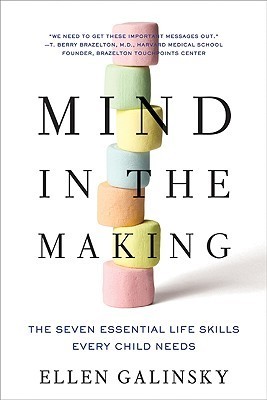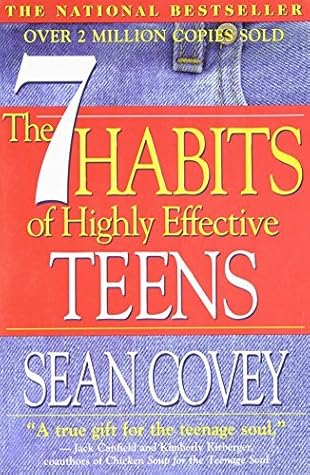Have you ever wondered why your teen/child seems forgetful, disorganized, or struggles to start tasks—even when they know what to do? These challenges are often signs of executive function deficiencies, a term that describes difficulties with the brain’s self-management system. See Understanding Executive Function Deficiency in Children and Teens for an introduction of executive function deficiency.
Smart but Scattered by Peg Dawson & Richard Guare

A guide to help children develop executive skills, manage their time, and improve their organizational abilities. It provides strategies for parents to support their children's development in these areas.
Key Strategies
- Identifying Executive Skill Strengths and Weaknesses
- Creating Routines and Structures
- Setting Goals and Providing Incentives
- Teaching Problem-Solving Skills
- Using Visual Aids and Checklists
- Managing Time Effectively
- Building Emotional Control and Flexibility
Videos (7)
Understanding Executive Skills in Children
Strategies for Improving Organization in Kids
Helping Children with Time Management
Teaching Kids Problem-Solving Skills
Using Visual Aids to Support Learning
Building Emotional Control in Children
Smart but Scattered by Peg Dawson & Richard Guare
Executive Function Difficulties: A Practical Guide to Assessment and Intervention by Jill Fahy

Comprehensive strategies for assessing and intervening in executive function difficulties, focusing on practical tools and techniques for educators and clinicians.
Key Strategies
- Assessment of Executive Functions
- Intervention Planning
- Skill Development Techniques
- Environmental Modifications
- Collaborative Approaches
- Progress Monitoring
- Family and School Involvement
Videos (7)
Executive Function: Assessment Techniques
Intervention Strategies for Executive Function
Developing Executive Function Skills
Modifying Environments for Success
Collaborative Approaches in EF Intervention
Monitoring Progress in Executive Function
Involving Families and Schools in EF Support
The Whole-Brain Child by Daniel J. Siegel & Tina Payne Bryson

Strategies to nurture a child's developing mind, integrating the left and right brain, and fostering emotional and intellectual growth.
Key Strategies
- Connect and Redirect
- Name It to Tame It
- Engage, Don't Enrage
- Use It or Lose It
- Move It or Lose It
- Let the Clouds of Emotion Roll By
- SIFT: Sensations, Images, Feelings, Thoughts
Videos (8)
The Whole-Brain Child: Connect and Redirect
The Whole-Brain Child: Name It to Tame It
The Whole-Brain Child: Engage, Don't Enrage
The Whole-Brain Child: Use It or Lose It
The Whole-Brain Child: Move It or Lose It
The Whole-Brain Child: Let the Clouds of Emotion Roll By
The Whole-Brain Child: SIFT
The Whole-Brain Child by Daniel J. Siegel & Tina Payne Bryson
Mind in the Making: The Seven Essential Life Skills Every Child Needs by Ellen Galinsky

A guide to nurturing essential life skills in children, focusing on fostering executive functions and promoting lifelong learning.
Key Strategies
- Focus and Self-Control
- Perspective Taking
- Communicating
- Making Connections
- Critical Thinking
- Taking on Challenges
- Self-Directed, Engaged Learning
Videos (8)
Focus and Self-Control in Children
Teaching Perspective Taking
Effective Communication Skills for Kids
Making Connections: Building a Network of Knowledge
Fostering Critical Thinking in Children
Encouraging Children to Take on Challenges
Promoting Self-Directed, Engaged Learning
Mind in the Making: The Seven Essential Life Skills Every Child Needs by Ellen Galinsky
Late, Lost, and Unprepared: A Parents' Guide to Helping Children with Executive Functioning by Joyce Cooper-Kahn & Laurie Dietzel

A guide for parents to help children develop executive functioning skills, including planning, organization, time management, and emotional regulation.
Key Strategies
- Creating Routines
- Visual Schedules
- Time Management Tools
- Organizational Systems
- Emotional Regulation Techniques
- Goal Setting and Planning
- Self-Monitoring Strategies
Videos (8)
Understanding Executive Functioning in Children
Helping Kids Develop Time Management Skills
Organizational Skills for Children
Emotional Regulation for Kids
Creating Effective Routines for Children
Goal Setting with Children
Self-Monitoring Techniques for Kids
Late, Lost, and Unprepared: A Parents' Guide to Helping Children with Executive Functioning by Joyce Cooper-Kahn & Laurie Dietzel
The Explosive Child by Ross W. Greene

A guide for understanding and helping easily frustrated, chronically inflexible children. It introduces a collaborative problem-solving approach to address challenging behaviors.
Key Strategies
- Collaborative Problem Solving
- Identifying Triggers
- Empathy and Listening
- Defining the Problem
- Brainstorming Solutions
- Implementing Solutions
- Reviewing and Adjusting
Videos (7)
The Explosive Child – Overview of Key Concepts
Collaborative Problem Solving in Action
Understanding Triggers and Meltdowns
Empathy and Effective Listening Techniques
Defining Problems and Finding Solutions
Implementing and Reviewing Solutions
The Explosive Child by Ross W. Greene
Smart but Scattered Teens by Richard Guare, Peg Dawson & Colin Guare

A guide for helping teenagers develop executive skills to succeed in school and life, focusing on organization, time management, and emotional regulation.
Key Strategies
- Understanding Executive Skills
- Identifying Teen's Strengths and Weaknesses
- Creating a Supportive Environment
- Setting Goals and Priorities
- Developing Time Management Skills
- Improving Emotional Regulation
- Enhancing Problem-Solving Abilities
Videos (6)
Executive Skills for Teens: An Overview
Helping Teens with Time Management
Emotional Regulation Strategies for Teens
Creating a Supportive Environment for Teen Success
Goal Setting and Prioritization for Teens
Smart but Scattered Teens by Richard Guare, Peg Dawson & Colin Guare
The 7 Habits of Highly Effective Teens by Sean Covey

A guide for teenagers to improve their personal and interpersonal effectiveness by adopting seven key habits.
Key Strategies
- Be Proactive
- Begin with the End in Mind
- Put First Things First
- Think Win-Win
- Seek First to Understand, Then to Be Understood
- Synergize
- Sharpen the Saw
Videos (9)
Overview of the 7 Habits for Teens
Habit 1: Be Proactive
Habit 2: Begin with the End in Mind
Habit 3: Put First Things First
Habit 4: Think Win-Win
Habit 5: Seek First to Understand, Then to Be Understood
Habit 6: Synergize
Habit 7: Sharpen the Saw
The 7 Habits of Highly Effective Teens by Sean Covey
